
10 minute read
MAKE MONEY WITH TECH
Can Musicians Still Strike Gold During a Global Pandemic?
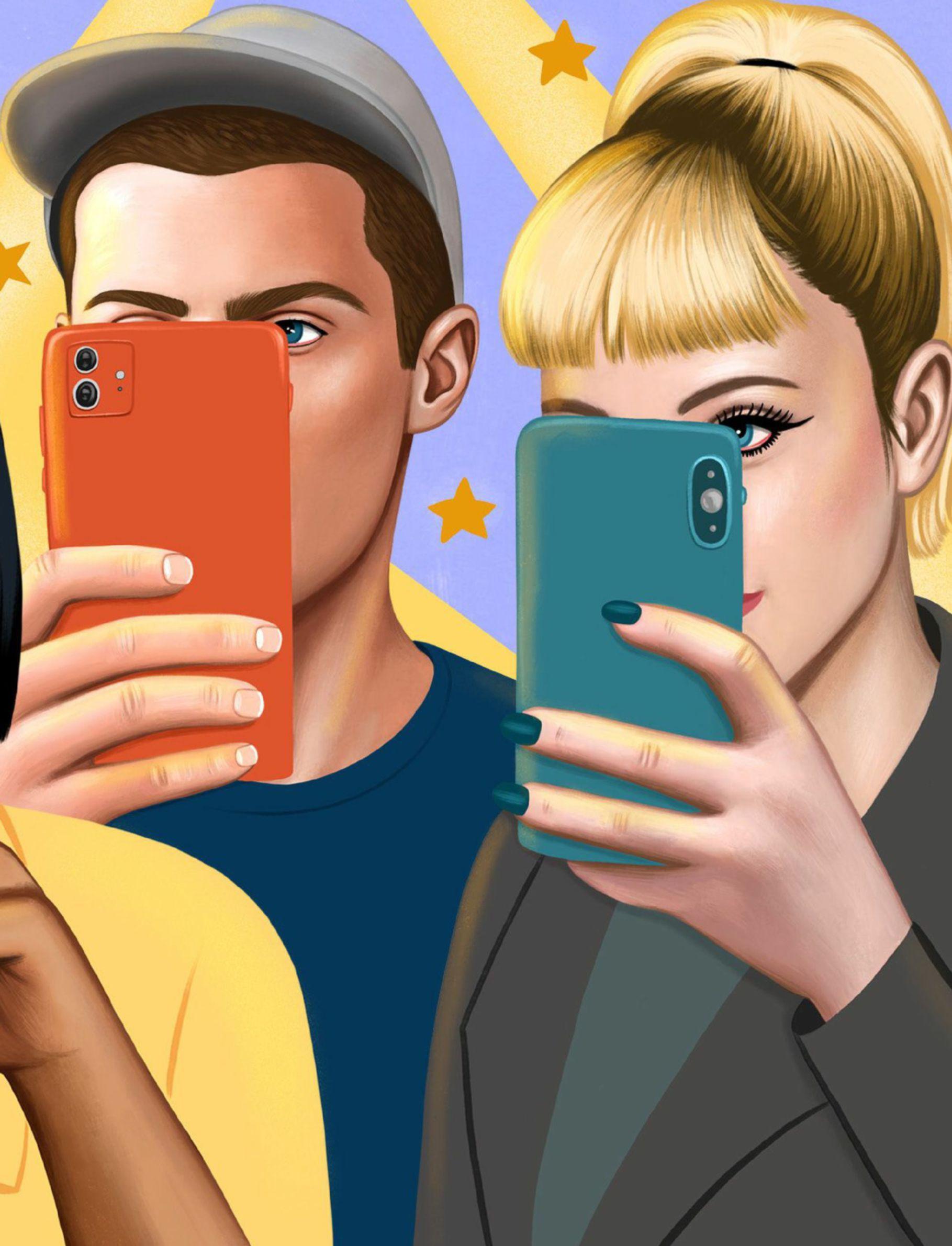
The coronavirus pandemic hit the music industry hard in 2020, but amid the hustle to stay afloat there’s a glimmer of opportunity for media-savvy artists
Cookiee Kawaii had never used TikTok before her song “Vibe (If I Back It Up)” went viral in February 2020. The New Jersey rapper and singer was working as an exotic dancer when a friend began sending her screenshots of videos set to her song that people were posting on TikTok. Kawaii downloaded the app and was stunned by how many TikToks used “Vibe.” “It was literally taking on a life of its own before I could even get a hold of it,” Kawaii says. ”Vibe,” an 83-second burst of murky R&B and trap beats, was released in the summer of 2019, so Kawaii had no idea why it took off so many months later. She jumped into the comments of the TikTok videos, identifying herself as the artist behind the song and thanking the creators for using it. Soon the 27-year-old was booked to make her first appearance at South by Southwest—one of the largest music festivals in North America. It seemed that 2020 would be Kawaii’s breakout year.
Enter the coronavirus. South by Southwest was canceled at the beginning of March and, in the weeks that followed, virtually every major festival and music venue around the world shut down, a growing number of them doing so permanently. The music industry has teetered on the brink of collapse ever since, with artists unable to tour, release schedules left in limbo and no clear sign of when those situations will change.
The pandemic, however, did little to slow down “Vibe’s” momentum. There are now 1.6 million videos listed for it on TikTok, where Kawaii has leapt to 1.1 million followers, and the song—in its various incarnations, including a remix featuring Tyga that was released in August—has more than 75 million plays on Spotify. Kawaii has since signed a deal with Empire Management, hired a legal team and begun locking down her copyrights. She’s been featured in Rolling Stone and interviewed by XXL and The Fader, was featured on a Spotify playlist by Beyoncé and recently did a photo shoot with Vogue.
With touring plans still on hold, Kawaii spends a good part of her days online, engaging with fans. TikTok is where her audience first found her and where it remains, for now. “They’re going to remember that engagement, that time I was there and just being super nice,” she says. “And that’s gonna make them want to buy tickets.”
This kind of phenomenon isn’t unprecedented or uncommon. TikTok has been an explosive force for musicians ever since Lil Nas X’s “Old Town Road” began its record-smashing run there in early 2019. Although musicians can’t make money directly through the app, its influence and viral capability can be pure gold. And as the pandemic and shifting consumer habits have contributed to the decline of the industry’s few remaining traditional sources of income, musicians have turned to the influence of other online platforms to try to make ends meet. While artists once played live for ticket and merch sales, they now scrabble together what they can through livestreamed equivalents on sites like Twitch and Patreon, which offer ways for hardcore fans to support artists with tips or subscriptions. For musicians with sufficiently large fanbases, there are potential advertising dollars on YouTube and Facebook. And big social media numbers can help increase streaming income on services such as Spotify and Apple Music, which pay mere fractions of a penny per song play.
The internet is already a natural habitat for Marc Rebillet, whose career wouldn’t exist without it. Prior to the pandemic, the 32-year-old New York–based electronic musician built a cult following online with his wacky, improvisational videos, accruing 1.8 million followers on Facebook and another million on YouTube, which he parlayed into a successful touring career. “I’m utilizing the internet to basically be a giant, dynamic billboard to come see me,” Rebillet says.
Such digitally focused tactics have helped Rebillet add to his fanbase during the pandemic. He has smoked weed on Instagram with Wiz Khalifa, performed on Twitch with Flying Lotus and had hip-hop stars Erykah Badu, Ice-T and Snoop Dogg sing his praises and share his music on Instagram and Twitter, where his followers have more than doubled since March to over 380,000. In an echo of Kawaii’s experience, many of those relationships were first formed by Rebillet replying to an online mention. ”If you can be there to interact with the people who are posting your stuff, particularly public figures, [social media] is a really strong way to solidify those connections. But you have to be there. You have to be there at the moment they share stuff,” Rebillet says. “You just have to be on your phone all the fucking time.”
That mindset led Rebillet to connect with Badu, who ended up livestreaming with him and later joining him in Fort Worth, Texas for an unconventional live show. Like many musicians, Rebillet’s originally scheduled tour plans for 2020, which included his first appearances at Red Rocks Amphitheatre outside Denver and the Bonnaroo Festival in
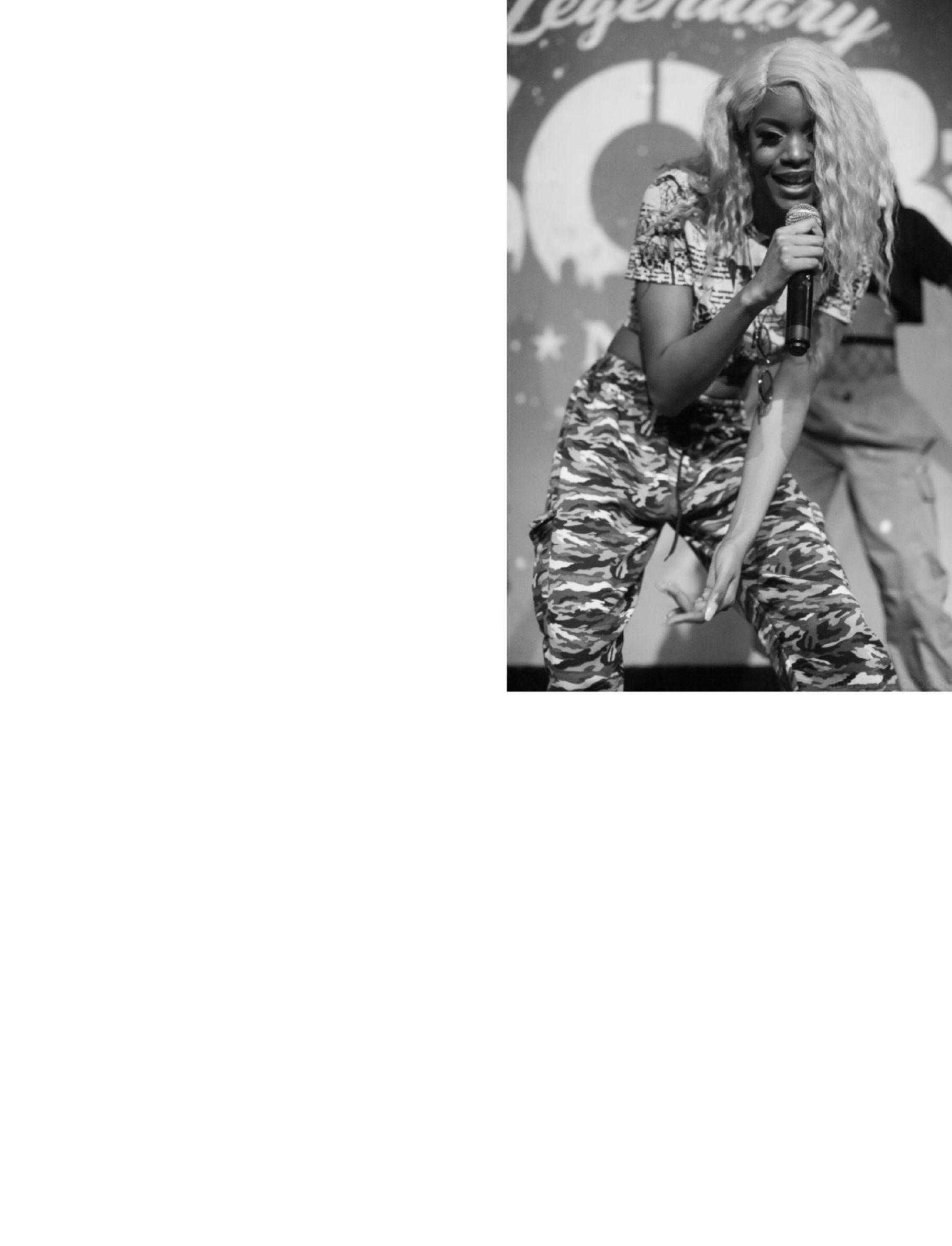
Cookiee Kawaii by Rodesca Photography
Marc Rebillet by Shane McCormick
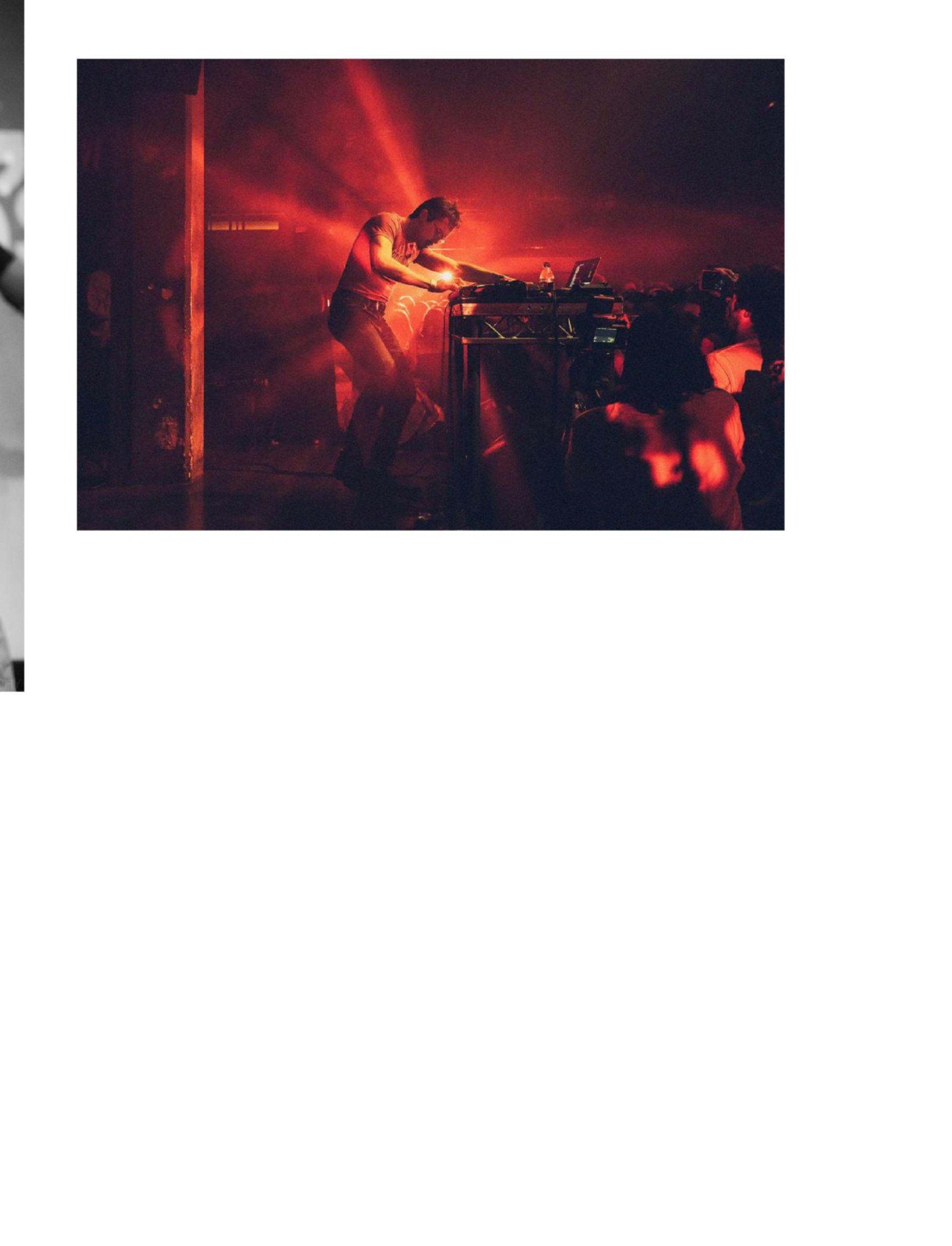
Manchester, Tennessee, were put on hold by the pandemic. But he managed to pull off a tour in June by visiting drive-in movie theaters in nine cities across the United States. Navigating local restrictions, coordinating safety protocols and selling tickets all posed major risks, but the tour earned write-ups from CNN and NPR and grossed about R9,178,800.00. ”Honestly, I thought it was going to be a disaster,” Rebillet admits. Tickets sold out for every night of the tour. Rebillet’s pandemic stage show was achievable in part because he’s a solo artist—he performs with only a keyboard and loop station. Plus, he says, timing was key. “I think it only worked as well as it did because we did it really in the thick of [Covid-19],” he says.
Most artists haven’t had the luxury of salvaging a tour this year. RAC—the nom de plume for André Anjos, a Grammy Award–winning producer from Portugal who lives in Portland, Oregon—had to eat some costs he incurred from booking a 2020 tour intended to coincide with the release of his third studio album, Boy, in May. He went ahead with releasing Boy on schedule, deciding that the digital-only marketing strategy for album promotion would have to suffice. Luckily, the 35-year-old says that in recent years he’s already tried to shift his business model away from relying on live shows, instead building up his portfolio of remixes, production credits and commercial song syncs, licensing his music out for TV shows and advertisements. His remix of Bob Moses’s song “Tearing Me Up” earned him a Grammy in 2016 and he received another Grammy nomination in 2020 for his remix of Phil Good’s “Do You Ever.”
But even with these accolades, he doesn’t yet collect streaming royalties from his solo material: As is the case with most indie record contracts, revenues are split 50-50 with his label, Counter Records, but only after recoupable losses are recovered. RAC has even trimmed his live show down from an ensemble to a solo act, to cut costs. But, with narrow margins, irregular pay cycles and sometimes flaky promoters, it’s still not a lucrative revenue stream. “This idea of touring for income and putting out records for income is just not sustainable,” RAC says. “I want it to work. I want to be the Tame Impala that puts out an album every four years and does tons of streams, and that’s enough. But the reality is, only certain people can do that.”
Danielle Johnson, a songwriter, producer and DJ from New York who performs under the name Danz CM, had her own plans for an album release and
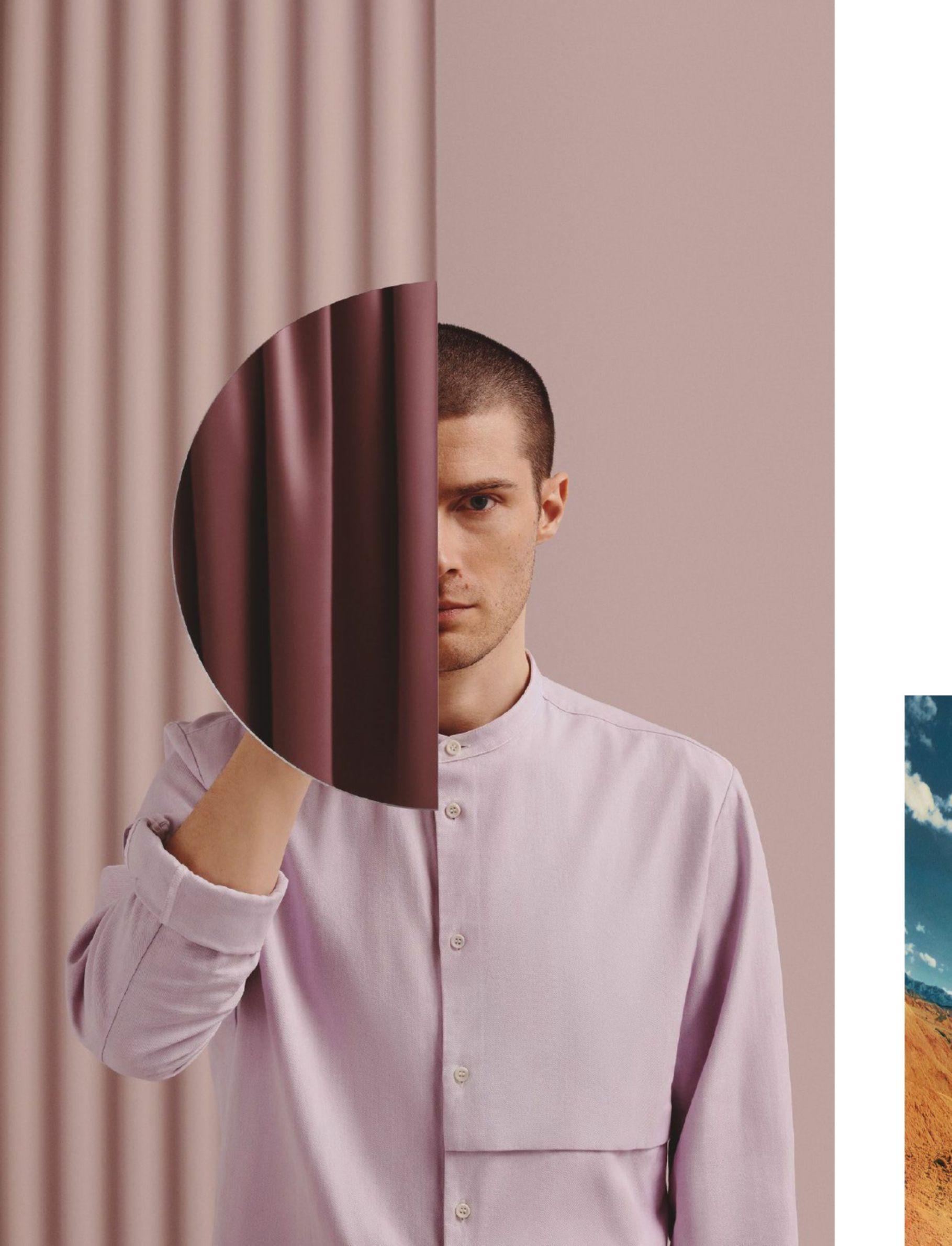
tour upended by the pandemic. After finishing her album, The Absurdity of Human Existence, in 2019, Danz CM held on releasing it in hopes of finding a distribution deal. Now she’s planning to self-release the album in March to follow the first single, “Idea of You,” which she released December 11, 2020. “It sounds pretty dark, but I’m just worried if I wait anymore, who knows what’s gonna happen?” she says.
Danz enjoys a bigger following in Japan, where she works with Tugboat Records, than she does stateside, where she has always put out her releases through her own label, Channel 9 Records. Although she hasn’t toured in North America since 2018, she says the biggest hit from not being able to promote the album on the road is the missed merch and album sales. “Probably 60 to 70 percent of the income with that stuff is from live shows. I might sell 30 copies of a vinyl [record per show at the merch booth],” Danz says. To compound matters, one of her biggest sources of income— commercial song syncs, which in Japan included major corporate clients like Panasonic—evaporated early on during the pandemic, forcing her into dire financial straits.
Unlike Cookiee Kawaii, who briefly worked as a food delivery driver when the pandemic started but was able to quit thanks to her music streaming income, RAC and Danz both needed ways to replace lost revenue from touring. They both now do regular livestreams on Twitch, and RAC also uses Patreon. RAC has seen particular success with livestreams, pulling in more than 600,000 viewers in some weeks on Twitch alone. “It completely replaced my income from touring,” he says. “I’m actually making more money now doing this than I was touring.” At the same time, his Spotify numbers have increased by one-third, with his monthly listenership up to nearly 2.3 million.
In recent months, RAC and Danz have both experimented with their livestream formats. RAC’s streams are typically three hours long, twice a week, and include him talking to fans while he works on music. “I was like, okay, if I’m gonna stream, I want to do this pretty consistently, kind of like gamers do,” he says. “I want people to feel like they’re hanging out with me.”
Danz took a cue from other Twitchers and played video games on her livestreams, but quickly found that she gets a better response when she plays music or does instructional videos for programs like Ableton. An avid gear head, Danz spent much of the summer focused on @synth_history, an Instagram page about vintage synthesizers that she started in 2019. The account’s followers have roughly doubled during the pandemic, and its 106,000 fans include Trent Reznor and John Mayer. Through the Synth History project, Danz conducted Q&As with the likes of the Who’s Pete Townshend, LCD Soundsystem’s James Murphy and 1970s synth pioneer Suzanne Ciani. She released the first episode of a Synth History podcast in August.
Despite Synth History’s growth, it’s not yet a moneymaker for Danz. Yet there are reasons for optimism, including gigs scoring The Map, a documentary short from I Am Trying to Break Your Heart and Mavis! producer Gary Hustwit, and an upcoming indie film.
Even for a social media–savvy musician like Rebillet, the volatility of the pandemic has only underlined how fleeting success can be for musicians in normal circumstances. In October, while Rebillet was in Los Angeles, he began work on his first proper album, posting a photo from the studio with Snoop Dogg. While on the West Coast, he performed a trio of new drive-in shows, and on Thanksgiving day he did a Facebook livestream from his apartment in New York that was sponsored by Manscaped and seen by 886,000 people. For Rebillet, the hustle is working, if only for right now. “There’s still some room to take this to even more ridiculous places while juicing some other plan, while watering some other plants so I have an exit strategy for this and I can enter the world of broader entertainment and keep this as a thing,” Rebillet says. “But I think it has a shelf life. I can’t do this forever.”
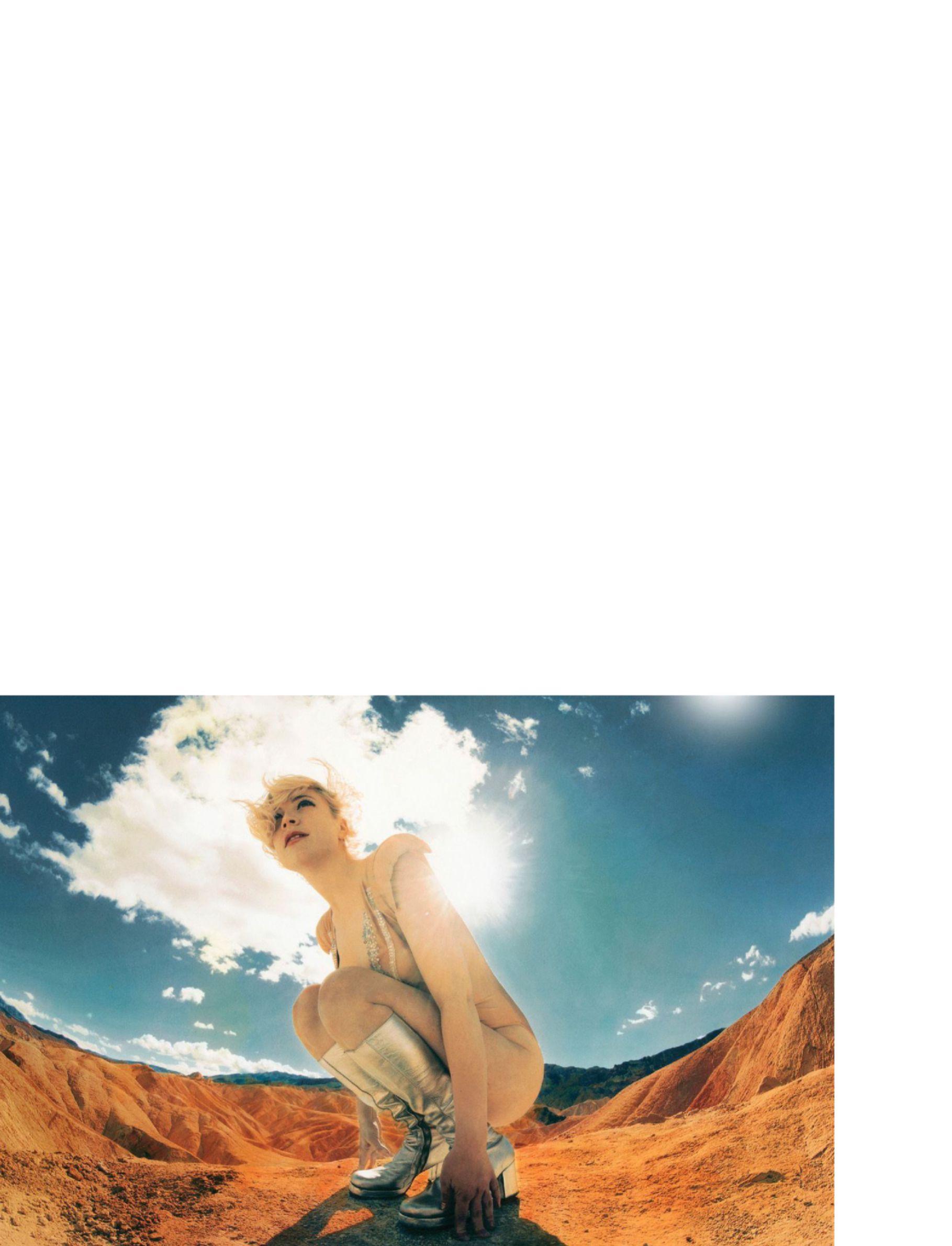
Danz CM by Shae Detar










